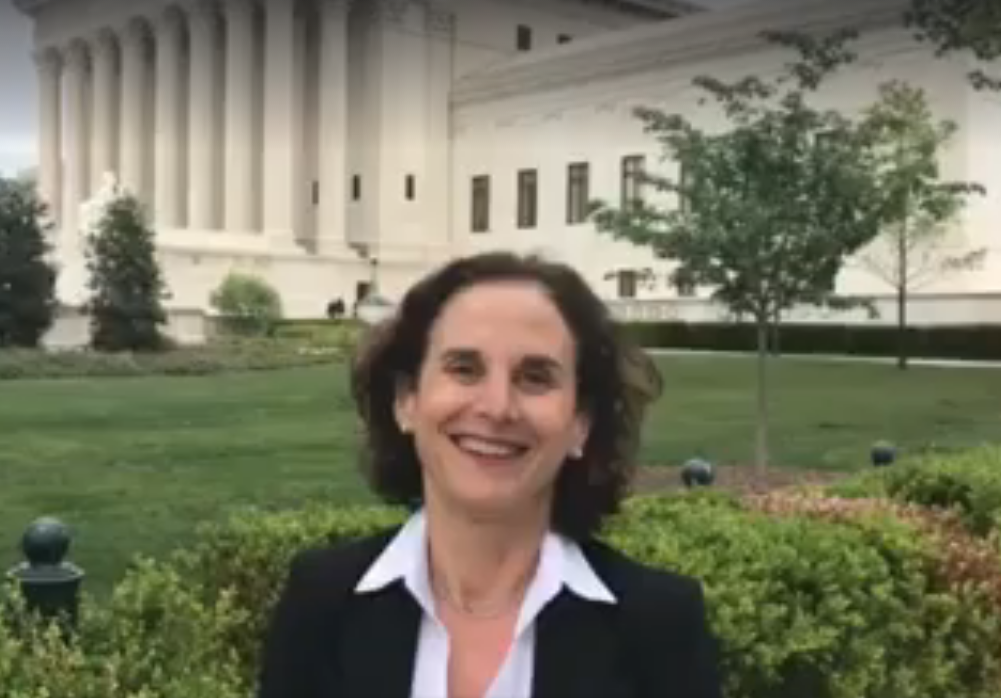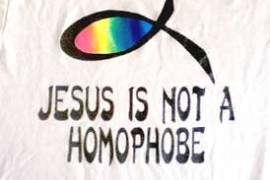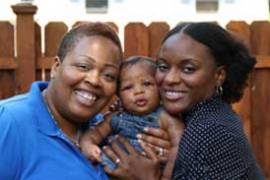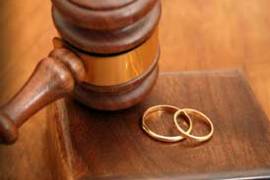Today the U.S. Supreme Court heard the long-awaited argument in Trinity Lutheran Church—the first separation-of-church-and-state case in which newly confirmed Justice Gorsuch has sat and as questions about lines between religious liberties and the dangerous use of religion to discriminate take center stage in the national debate. Lambda Legal submitted a friend-of-the-court brief in Trinity Lutheran warning of pitfalls for LGBT people and people living with HIV if religious institutions are permitted to proselytize and to discriminate against LGBT people and other vulnerable minorities using government funds. I was in the Supreme Court for the oral arguments; here are my initial impressions.
The case is an appeal from federal rulings upholding Missouri’s adherence to its state constitutional provision, similar to provisions in over 30 other states’ constitutions, forbidding government aid to churches. Under that provision, rooted in Thomas Jefferson’s conception of separation of church and state, Missouri excluded Trinity Lutheran Church from participating in a state program giving grants to schools to resurface playgrounds with recycled scrap tire rubber. Trinity Lutheran, represented by the anti-LGBT group Alliance Defending Freedom (“ADF”), claims it’s entitled to the grant for its church preschool—at the same time ADF and Trinity Lutheran’s parent denomination have said publicly that church schools can exclude employees and children from other religions, and can even exclude children of same-sex parents. Lambda Legal’s brief brings these statements to light and warns that under no circumstances should churches that discriminate be given government support.
In a new twist just days ago, discussed at argument this morning, Missouri’s Governor announced that the State will now permit Trinity Lutheran and other churches to participate in the scrap tire program. This effectively gives Trinity all it has sought in this case—the ability to participate in the grant program—potentially making the case moot, and, in any event, as several Justices suggested, a poor choice for Court consideration.
When it came to discussion of the merits, several Justices posed questions Lambda Legal also raised in our brief. In particular, as Justice Kennedy and others wondered, could Missouri be sure that the playground wouldn’t be turned into a prayer-ground for the school’s children? And, as Justice Ginsburg queried, wouldn’t there be other constitutional concerns if Trinity Lutheran decided to admit only Lutheran children or only Christian children? Justice Breyer asked if the church grant program could be analogized to neutral, generally available government fire-fighting services or vaccine programs, benefitting the health and welfare of children and others and not blocked by Missouri’s no-aid constitutional provision, opening whether this might be a narrow tack some Justices could consider taking.
Whether at least some Justices might decide that the Missouri Governor’s policy shift counsels against reaching the constitutional issues in the case, and how a majority might decide if the Court reaches the merits, remain open questions. What is clear is that more than child’s play—and the playground surface on which it takes place—is being debated in Trinity Lutheran and cases like Barber v. Bryant in which Lambda Legal is co-counsel with Mississippi advocates. These cases address the extent to which governments can choose to support, or decline for many compelling, and even constitutionally required, reasons to support, religious institutions and particular religious beliefs. For people who are LGBT and living with HIV, the stakes in this debate are extraordinarily high—the stigma and profound harms from government-funded discrimination and condemnation in the name of religion. As the Supreme Court made clear in the same courtroom just two years ago, the government no longer should participate in “harming and humiliating” LGBT people and their children, whether in the name of religion or for any other reason.





